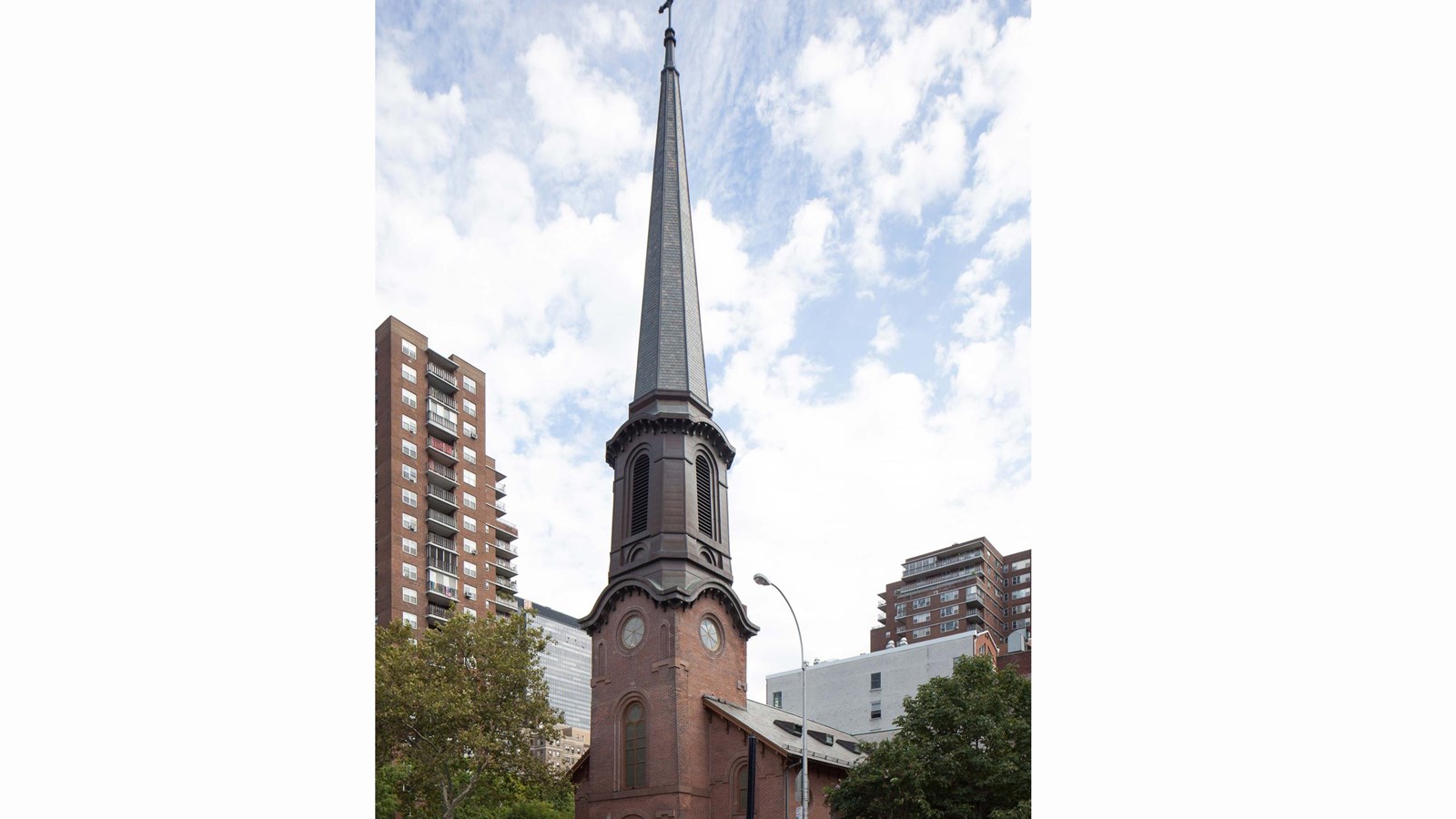Last updated: February 20, 2025
Place
Church of the Holy Apostles

Photograph by Andrew Dolkart, courtesy of New York State Historic Preservation Office
Quick Facts
Location:
296-300 9th Ave. New York, NY
Significance:
Architectural, Religion, Social, LGB History
Designation:
Listed in the National Register – Reference number 72000867
MANAGED BY:
The Church of the Holy Apostles, listed in the National Register of Historic Places in 1972 and amended in 2020, is significant for its early association with a number of important LGB political, social, and religious organizations. From 1969 to 1974, the Church of the Holy Apostles in Chelsea was one of the most important meeting places in New York City for organizations of the early post-Stonewall gay rights movement, including the West Side Discussion Group, Gay Liberation Front, and Gay Activists Alliance. It essentially served as New York City’s first LGB community center.
Founded in the decade after Stonewall, the June 1969 uprising by patrons at the Stonewall Inn, a Greenwich Village gay bar, was a key turning point in the history of the LGB rights movement. From 1969 to 1977, the Church of the Holy Apostles, with a congregation that welcomed members of the LGB community, essentially served as New York City’s first LBG community center, hosting meetings of the West Side Discussion Group, the Gay Liberation Front, and the Gay Activists Alliance, among the city’s earliest and most important activist organizations in the fight for LGB civil rights. Holy Apostles also provided space, between 1970 and 1975, for three early LGB religious congregations that were founded there: the Church of the Beloved Disciple, the Metropolitan Community Church of New York, and Congregation Beth (Beit) Simchat Torah, the first permanent LGB synagogue on the East Coast.
Meetings by these LGB organizations took place in both the church and the adjacent, attached parish house. One singularly significant event was the January 1977 ordination as a priest of Ellen M. Barrett by Bishop Paul M. Moore. She was one of the first American women to be ordained (and one of the first in the Diocese of New York) and was also the very first openly lesbian or gay Episcopal priest. The establishment of places where groups of gay men and lesbians could meet openly and/or worship the religion of their choice in an era of open hostility toward them was important because these places served as sources of comfort, community and stability for people who often lacked families or other sources of support.
Founded in the decade after Stonewall, the June 1969 uprising by patrons at the Stonewall Inn, a Greenwich Village gay bar, was a key turning point in the history of the LGB rights movement. From 1969 to 1977, the Church of the Holy Apostles, with a congregation that welcomed members of the LGB community, essentially served as New York City’s first LBG community center, hosting meetings of the West Side Discussion Group, the Gay Liberation Front, and the Gay Activists Alliance, among the city’s earliest and most important activist organizations in the fight for LGB civil rights. Holy Apostles also provided space, between 1970 and 1975, for three early LGB religious congregations that were founded there: the Church of the Beloved Disciple, the Metropolitan Community Church of New York, and Congregation Beth (Beit) Simchat Torah, the first permanent LGB synagogue on the East Coast.
Meetings by these LGB organizations took place in both the church and the adjacent, attached parish house. One singularly significant event was the January 1977 ordination as a priest of Ellen M. Barrett by Bishop Paul M. Moore. She was one of the first American women to be ordained (and one of the first in the Diocese of New York) and was also the very first openly lesbian or gay Episcopal priest. The establishment of places where groups of gay men and lesbians could meet openly and/or worship the religion of their choice in an era of open hostility toward them was important because these places served as sources of comfort, community and stability for people who often lacked families or other sources of support.
